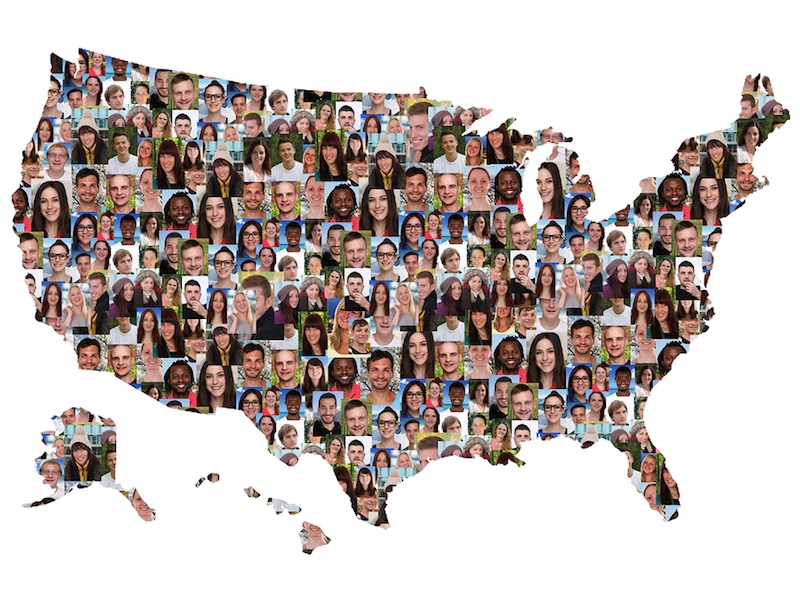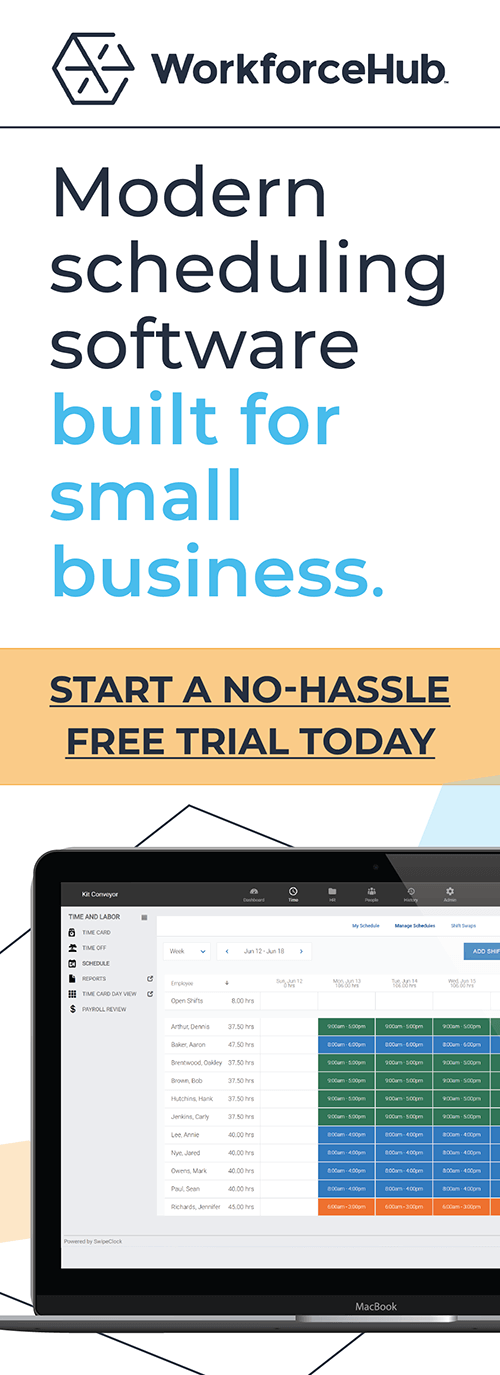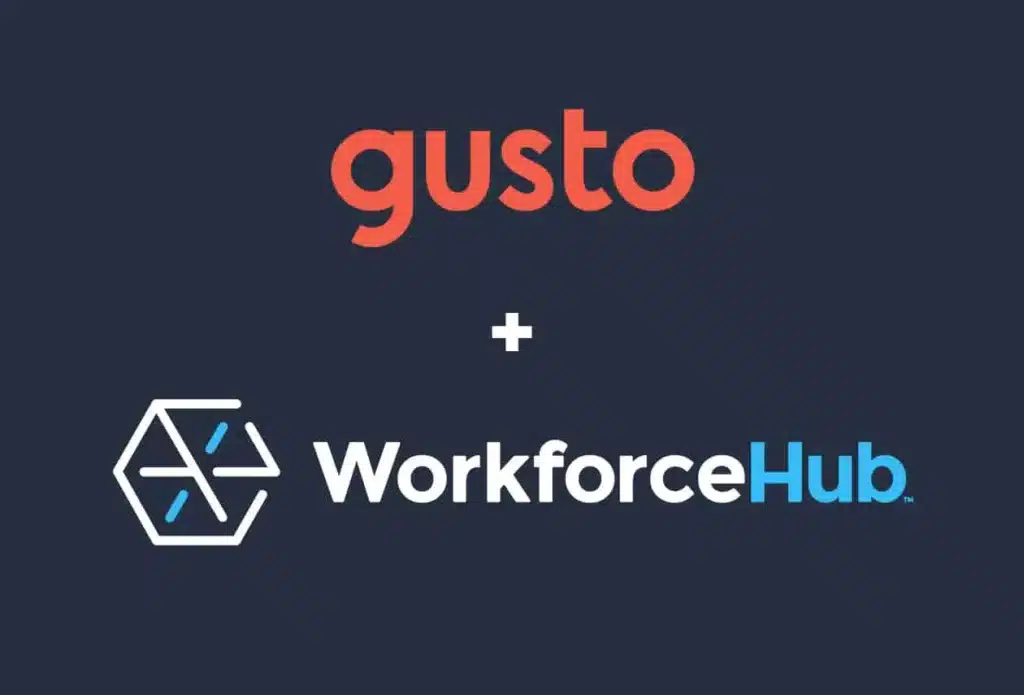Multi-State Employer? Compliance Checklist for Companies With Employees In Multiple States

Multi-State Employer? Pay Attention To State Workplace Laws
Congratulations to all multi-state employers! You are driving economic growth, providing jobs, and investing in communities. We wish you continued success. If you are opening your first out-of-state location, you can pat yourself on the back for reaching a milestone many businesses never reach.
Of course, there are important compliance considerations when expanding your business. The most important thing for a multi-state employer to know is that they are obligated to the laws where employees are working—not just the laws where the business is based. If you have telecommuters or mobile employees that travel interstate, things get even more complicated.
Let’s look at the issues at play.
How Do I Know Which Law To Follow?
You are most likely familiar with the Fair Labor Standards Act (FLSA). It’s important to understand that many state laws that differ from the FLSA. In addition, cities and counties have their own laws which address issues not covered in the FLSA or provide additional protections. This multi-layered patchwork of legislation is a challenge for every multi-state employer.
- Federal law takes precedence where it has a higher standard. This includes the FLSA, Family Medical Leave Act (FMLA), and the Affordable Care Act (ACA).
- If a state, county, or city regulates something not addressed in the FLSA, you are obligated to comply with it.
- When a jurisdiction has a higher standard than the Federal law, you must follow the higher standard along with all provisions of the Federal law.
Get Professional Guidance
Businesses of any size need legal counsel for workplace regulations. Employment attorneys and Human Resources professionals can minimize legal exposure for multi-state HR management. When performing due diligence for a new location, seek counsel familiar with the state and local regulations for your new office. If you are in a highly-regulated industry, you may need industry experts as well.

Construction workers in San Francisco, CA. Photo by Jeriden Vellegas on Unsplash.
Use Workforce Management Software
Workforce management software is a must for any multi-state employer. Time and labor platforms allow you to set rules for employee classification, overtime thresholds, employee scheduling, accruals, pay rules, job roles, union contracts, and industry regulations. Use HR software equipped to handle the logistics of multi-state businesses.
Let’s look at some tools that streamline compliance:
- Verification time clocks: Ensure accurate timekeeping for minimum wage, overtime, Fair Scheduling, meals/breaks, ACA part-time or full-time status.
- Schedule adherence: Prevent early punch in from mandated breaks, restrict unauthorized punch outs that could affect overtime and minimum wage.
- Push notifications: Set overtime and unauthorized punch alerts.
- Employee scheduling: Set rules for Predictive Scheduling regulations, overtime, meals, and breaks.
- Records management: Compile documents in searchable databases to simplify recordkeeping requirements. (If using a workforce management vendor, ensure that they meet data security regulations.)
Document Compliance Policies In Your Employee Handbook
Your employee handbook should include far more information than compliance policies alone. But for the purposes of this article, we will focus on compliance content.
Start with a thorough core section that applies to all employees. This will include policies related to Federal laws. Explain both the employer’s and employee’s responsibilities under the laws. You will need additional sections for each regulated jurisdiction in which you have employees.
Download our Employee Handbook Template–updated with a sample remote work policy.
Multi-state Employer Compliance Checklist and Resources
Family Medical Leave
- FMLA: Many states (and some cities) have family leave laws that differ from the Federal law.
Minimum Wage and Overtime Laws
Employee Scheduling
State Income Tax Withholdings
- Each state has unique tax rates and brackets.
- The “physical presence” rule requires employers to withhold at the rate for the state in which the work is performed, even if the business is headquartered in another state.
- However, some states have “reciprocity rules” which require withholding for both locations.
Seasonal Workers
Meals and Breaks
Uniform Deductions
- Some states allow employers to deduct for uniforms if compensation doesn’t fall below minimum wage while others prohibit employers from deducting employee pay for any type of uniform.
Unemployment Taxes
Paid Time Off
- PTO Policies
- Some states restrict employers requiring employees to pay back unearned leave.
- Some states require employers to pay out unused earned PTO upon separation.
Final Paycheck
- Most states mandate time limits for final paycheck for separated employees.
- Some states limit the practice of withholding the paycheck until company property is returned.
Cannabis
- If you open a location where marijuana is legal, you may need to modify your drug-testing or drug-free workplace policies.
Jury Duty Leave
- New York and Massachusetts have special protections.
Employee Data Privacy and Access
- Some states limit what employment data employers must allow employees access to and the process for obtaining the information.
Worker’s Compensation Insurance
- Most states require employer’s to purchase worker’s compensation insurance as soon as they hire their first employee.
Disability Insurance
- California, Hawaii, New Jersey, New York, and Rhode Island require it.
Business Insurance
- Puerto Rico mandates business insurance.
Professional Liability Insurance
- Check your state for requirements for your business type and industry.
- Idaho and Oregon require it for attorneys.
- Colorado, Connecticut, Kansas, Massachusetts, New Jersey, Rhode Island and Wisconsin require it for doctors.
- Nebraska, New Mexico, North Dakota, Rhode Island and Texas require it for real estate agents.
Commercial Auto Insurance
- If your employees drive company-owned vehicles, you need commercial auto insurance (personal auto policies don’t cover business vehicles).
Accommodations for Nursing Mothers
- At least 30 states and dozens of cities have laws which address breastfeeding in the workplace.
Cell Phone Use While Driving
- Employers with mobile employees should ensure workers follow state law while driving on the job.
Interview Questions
- 10 states (and Puerto Rico) and at least eight cities prohibit asking salary history.
- At least 31 states and 150 cities ban questions about criminal history.
- Note that employers are not necessarily restricted from running background checks later in the hiring process.
Artificial Intelligence Use in Hiring and Promotion Processes
- AI use puts employers at a greater risk of an ADEA, Title VII, or ADA challenge.
- Illinois requires disclosure and race and ethnicity reporting for candidates and hires when AI is used.
- New York City has passed a measure to prohibit the use of automated decision-making tools to screen job candidates and evaluate current employees for promotion (Effective date January 2, 2023).
- The use of Artificial Intelligence in hiring also has biometric consent implications.
Employee Misclassification
- Some states have increased penalties for employers that misclassify employees as independent contractors to avoid taxes and other obligations.
Whistleblower Protection
- Alabama, Alaska, Arizona, Arkansas, California, Colorado, Connecticut, Delaware, Washington D.C., Florida, Georgia, Hawaii, Idaho, Illinois, Indiana, Iowa, Kansas, Kentucky, Louisiana, Maine, Maryland, Massachusetts, Michigan, Minnesota, Missouri, Nebraska, New Hampshire, New Jersey, New York, North Dakota, Ohio, Oklahoma, Oregon, Pennsylvania, Rhode Island, South Carolina, Tennessee, Utah, West Virginia and Washington have whistleblower protections.
- New York extended whistleblower protections to independent contractors and former employees.

Employees at a tech firm in Austin, TX. Photo by Austin Distel on Unsplash.
Non-Compete Agreements
- Many states have restrictions and others are considering proposals.
Privacy and Surveillance Disclosure
- Check state laws for regulations and notification requirements.
Tip Pooling
- In March 2018 the FLSA was clarified regarding tip pooling.
- Many states have additional regulations regarding tipped employees.
Anti-Harassment and Anti-Discrimination Training
- Many states have laws that mandate anti-harassment and anti-discrimination training.
Concealed Carry
- There is a patchwork of state and local laws that regulate guns in the workplace.
Biometric Data Security
- Many states regulate how biometric data can be used, including data collected by employee time clocks.
Payroll Transparency
- At least 14 states and many local jurisdictions have laws that govern pay equity and transparency.
Paycheck Direct Deposit
- Many states allow employers to require that employees use direct deposit.
Child Support Enforcement
- Federal law requires employers report new hires and rehired workers to a designated state agency within 20 days of hire, though some states require employers to report it sooner.
Anti-Discrimination Expansion
- Many states have added gender identity, sexual orientation, and gender expression as protected characteristics.
- Oregon and some cities in North Carolina include natural hairstyles as a protected characteristic.
Human Trafficking Awareness
- Some states require certain businesses to post human trafficking awareness signage.
Restrictions on Unpaid Internships
- Check your state law if you are considering offering unpaid internships–many states prohibit them or require that they meet stringent requirements.
Covid-19 Vaccination Leave
- Some cities and states require employers give employees leave to get a Covid-19 vaccination.
Protected Employee Speech on Social Justice Issues
- The National Labor Relations Board (NLRB) is considering a change in the law regulating employer policies regarding protected speech. The change would expand the types of protected speech employees could engage in. Stay abreast of the NLRB decision on overturning the 2017 Boeing Company decision. If the board overturns Boeing, the more employee-friendly standard in the Lutheran Heritage-Livonia case would apply. Therefore, employers would need need to check their employee handbook for policies that unlawfully regulate employee speech and make sure they are permitted under the new standard.
Provisions that might be unlawful under the Lutheran Heritage standard include:
- Policies prohibiting “loud, abusive, or foul language”;
- Rules banning “false, vicious, profane, or malicious statements about an employer or its employees”;
- Standards requiring employees to “work harmoniously” with one another; or
- Mandates prohibiting “negative energy or attitudes.”
(Source: David Law, “Big Changes at NLRB: Expansion of Section 7 Rights in 2022,” JDSUPRA)
Additional Resources
Simplify HR management today.
Simplify HR management today.
Gusto + WorkforceHub Timekeeping: A Match Made in Heaven
Manage your workforce efficiently with the time-tracking solution you need and data that syncs with your payroll platform. If you currently use Gusto, a cloud-based payroll, benefits and human resource management system, you may be looking for something to manage time and labor. After all, failing to track employee hours can put your business in…
Read MoreThe Importance of Facial Recognition Time Clocks for Small Businesses
Updated April 17, 2024 A facial recognition time clock is no longer a luxury. Advanced biometric clocks are a must-have for today’s workplaces. A facial recognition time clock is the best technology for tracking employee time. It solves a multitude of problems employers are facing with their workforces. What is a Facial Recognition Time Clock?…
Read More





